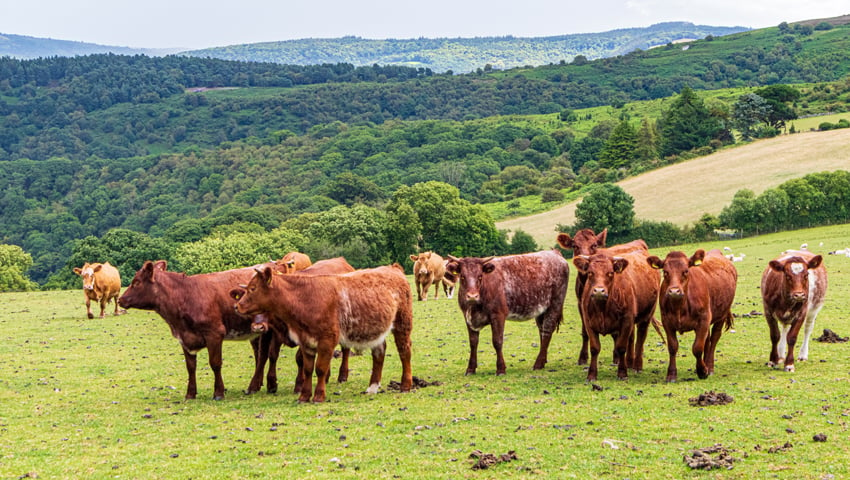Essential information on how farmers can combine various Sustainable Farming Incentive (SFI) actions to help boost income has been updated by the Agriculture and Horticulture Development Board (AHDB).
AHDB’s Stacking options for SFI analysis update coincides with the expanded SFI, open to new entrants for the first time to support more sustainable food production. It includes payments for precision farming and agroforestry aimed at helping farmers reduce input costs and improve yield.
The stacking analysis has shown that while the SFI can play a role in stabilising farm business incomes, farmers should carefully select the right options for their businesses to help boost their net profit level. AHDB has also published Agroforestry in the Sustainable Farming Incentive (SFI) information on its website, detailing actions available to farmers.
Sarah Baker, AHDB Head of Economics (Analysis), said, “SFI is at the top of farmers’ worry lists at the moment, weighing up whether or not to participate in the scheme and to what extent. The expanded SFI offer gives farmers much more flexibility in terms of choosing actions which suit their farms. It will contribute to net margin and mitigate loss of Direct Payments if used strategically and in line with business objectives, but careful consideration is needed to decide which plots of land to enter.
“Land that is less productive or consistently giving you insufficient yield is the most likely to give a positive return, once costs of participation and opportunity costs have been considered. Only careful planning and selection will ensure each farmer benefits economically.
“If actions can be carried out on less productive areas of the farm without sacrificing large areas of cash crops, an increase in net profit is likely. If the action fits with your current management plan, you may as well be getting paid for it. Such actions are also likely to help regenerate unproductive land and make it more productive in the long term.
“We’ve stressed the importance of farmers not sacrificing productive land and this is backed up in the expanded SFI offer which includes in-field agroforestry systems so trees can be integrated and managed in arable fields or grazed grassland across different farming systems. Essentially, our message is don’t take productive land out of production because you may lose money. Make sure you understand the true costs of participating which will vary between individual businesses.”
AHDB has reiterated that no single action in the SFI is going to be enough to mitigate the loss of Direct Payments, but the right combination of actions could play a major role in making up some of the shortfall. This will be more pronounced and helpful to farm businesses in years of average or low crop prices rather than in years in which prices are high. Similarly, farm businesses with lower gross profit levels will benefit more from the SFI than businesses with higher gross profit levels.
Sarah added, “The SFI will have a role in stabilising farm incomes, as has been the case for Direct Payments and the wider Basic Payment Scheme. Gains from the SFI will be amplified in low or average cost years and for businesses with low gross profit levels. But, if a loss is made, that too will be amplified under these conditions. Therefore, the importance of choosing actions with care and making the best plan for your farm is paramount.”
Key points to consider:
- The SFI alone is not going to be enough to mitigate the loss of Direct Payments but the right combination of actions could make up a considerable amount of the shortfall
- Taking part in the SFI can provide substantial extra income for arable farm businesses
- If farmers carefully select actions that are right for their farm, they can boost the farm’s net profit level
- If actions can be carried out on unproductive areas of the farm without sacrificing the area of cash crops, an increase in net profit is likely and also likely to help regenerate unproductive land and make it more productive in the long term
- Farmers have the opportunity to maximise the potential of every hectare of land on their farm
- The SFI has a greater impact on farms with low gross profit margins compared with those that have high gross profit margins
- For all farms, the financial benefit of taking part in the SFI is most likely to be felt in years where crop prices are average or below average and can act as buffer in lean years
- Looking ahead, the SFI can play a role in stabilising farm business incomes
- The expanded SFI offer gives farmers much more flexibility in terms of choosing actions which suit their farms, but only careful planning and selection will ensure each farmer benefits economically in their particular situation
AHDB’s full stacking analysis can be found here
Their guide, Agroforestry in the Sustainable Farming Incentive (SFI) is here
